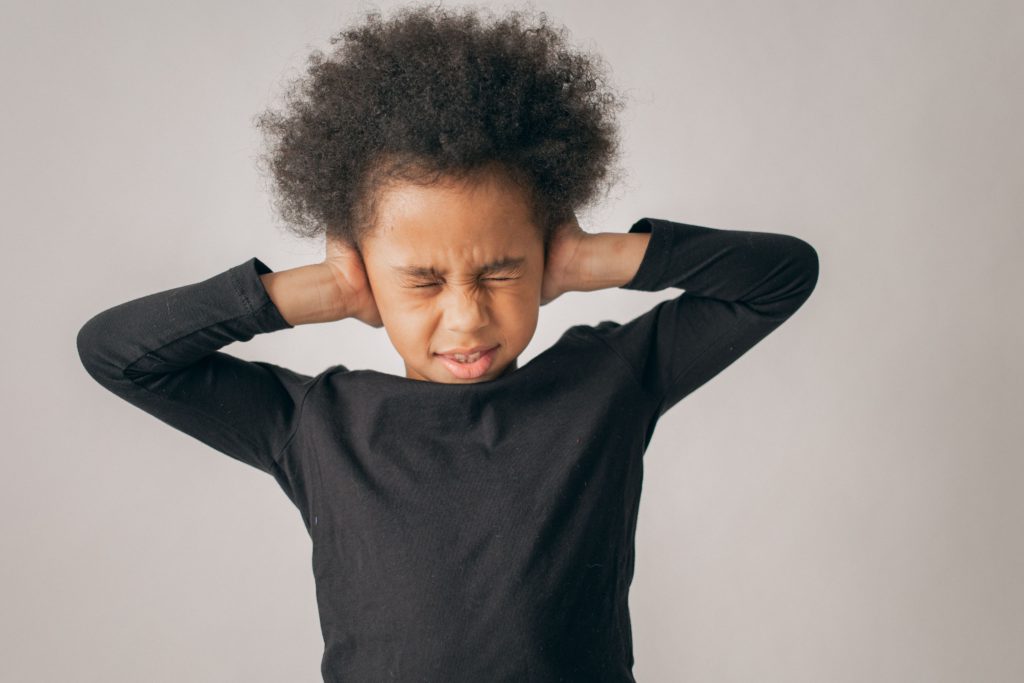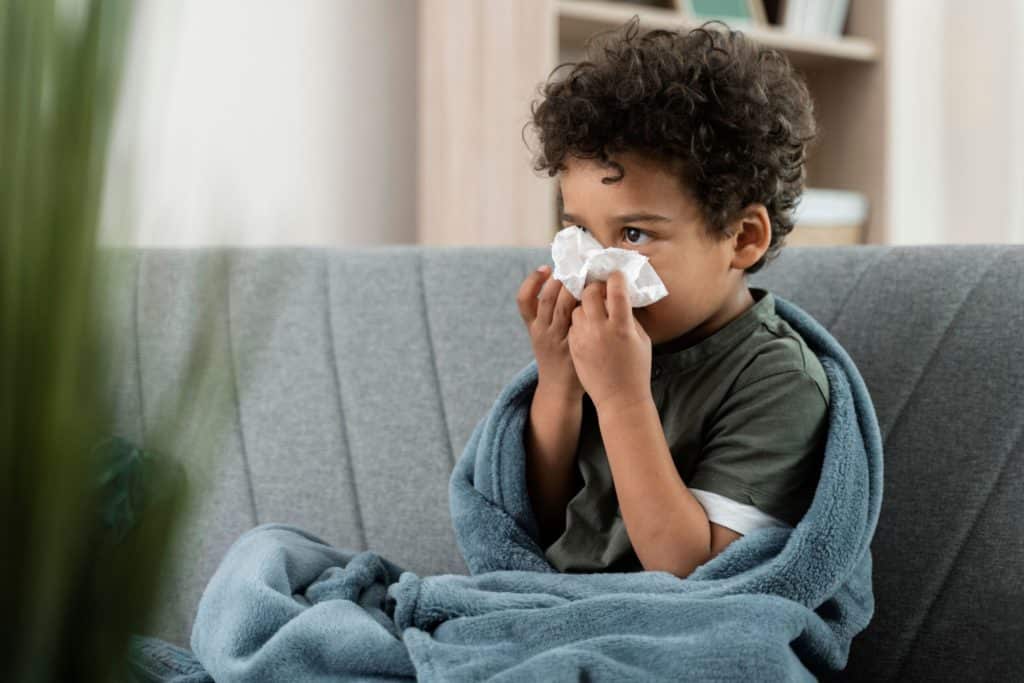Ear infections are inflammations of the middle ear usually caused by bacteria. Anyone can get an ear infection, but children are more likely to do so than adults because their immune systems are not fully developed. These infections could be triggered when your baby has a cold or sore throat, and they can hurt a lot.

A swollen and painful ear can make a baby very uncomfortable, and many mothers wonder how to recognize and treat this common problem. If you are one of them, this article is for you!
Symptoms Of Ear Infections
If your baby is not old enough to talk and tell you that their ear hurts, here are some symptoms to watch out for:
- Frequent pulling or rubbing of the ear
- Fussiness, irritability, and crying
- Trouble eating, drinking, and sleeping
- Fever in babies and young children
- Drainage of fluid from the ear
- Clumsiness or balance issues
- Difficulty hearing or reacting to quiet sounds
- Pulling or rubbing the ear often
- Fluid or pus coming out of the ear
- Trouble putting your baby to sleep
Types Of Ear Infections
There are two common types of ear infections:
- Middle Ear Infection: Middle ear infection occurs on the inner side of the eardrum and is also called ‘Otitis Media.’ It is caused by viruses or bacteria that enter the ear from the throat, especially if you baby has a cold.

- Outer Ear Infection: Outer ear infection occurs in the ear canal outside the eardrum and is also called ‘Otitis Externa’ or ‘Swimmer’s Ear.’ It is usually caused by too much moisture in the ear canal, sometimes after swimming. It can also be caused by injury to the ear canal, such as that caused by using cotton buds to clean ears.
How to Manage Ear Infections in Babies
Without treatment, most ear infections clear up within a few days. If your child isn’t in serious pain, your doctor may suggest that you just observe them while trying some home remedies to see if the infection clears up on its own.
Here are some things you can do for your baby at home:
- A warm compress: To help reduce pain, apply a warm, moist compress or face cloth over your child’s ear for about 10 to 15 minutes.
- Adequate Hydration: Giving your child drinks frequently can help them swallow, which will help open up the eustachian tube so that the trapped fluid can drain.
- Head Elevation: To help with sinus drainage, slightly elevate your baby’s crib at the head. Never put pillows beneath your baby’s head. Instead, tuck one or two pillows under the mattress.
- Proper Rest: Resting will help the body fight the infection so try to keep your child resting as much as possible.
- Antibiotics (if prescribed): If a doctor prescribes antibiotics for your child, follow the directions carefully. Your child needs to take the full course of antibiotics, so just because your child is feeling better doesn’t mean you should stop using them.
When Should You Call Your Doctor?
The majority of ear infections usually get better within the first few days and clear up on their own within one to two weeks without any medication. Regardless, keep a watchful eye on your child and contact your doctor if or when:
- Symptoms are present in a child less than 6 months of age
- Symptoms last longer than two or three days or get worse
- Your baby’s fever is worse
- Your child’s ear pain is getting worse.
- There’s a discharge of blood or pus from the ears
- Your child’s Ear pain is severe
- There’s redness or swelling around or behind the ear.
- After the ear infection has subsided, you notice any new symptoms.
- your child is getting a lot of ear infections
- you are worried about your child’s hearing
- Your child snores while asleep
- You think your child needs to be seen
How Can Ear Infections Be Prevented?
The following tips can help reduce the risk of your baby having and ear infection:
- Practice good hygiene by washing your hands frequently and thoroughly and teaching your children to do the same. Also, teach them to cough or sneeze into their elbows.
- Avoid secondhand smoke.
- Consider breast-feeding your baby because breast milk contains antibodies that may offer protection from ear infections. If you can, breastfeed your baby for at least six months.
- Hold your baby upright if you bottle-feed.
- Talk to your doctor about vaccinations.
- Try your best to avoid sick people.
Take Home Message
Ear infections can be an uncomfortable experience. But it’s all part of the journey of growing up. Parents should just keep a close eye on their little ones to ensure the growing process is going fine.

